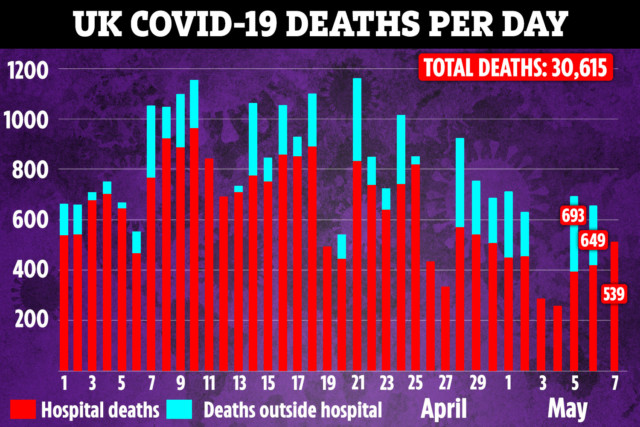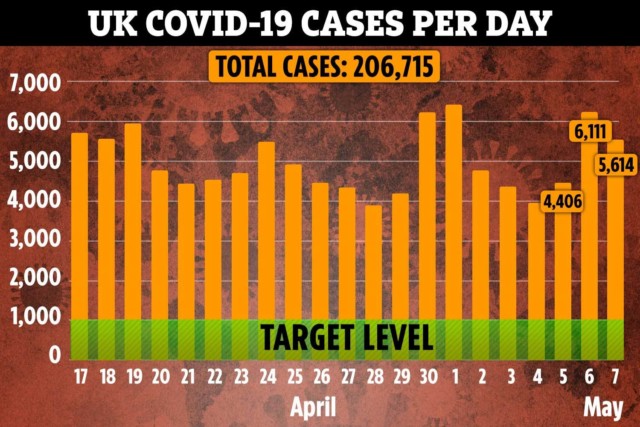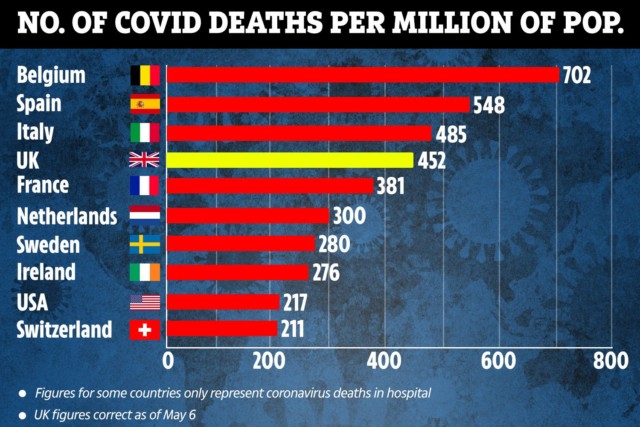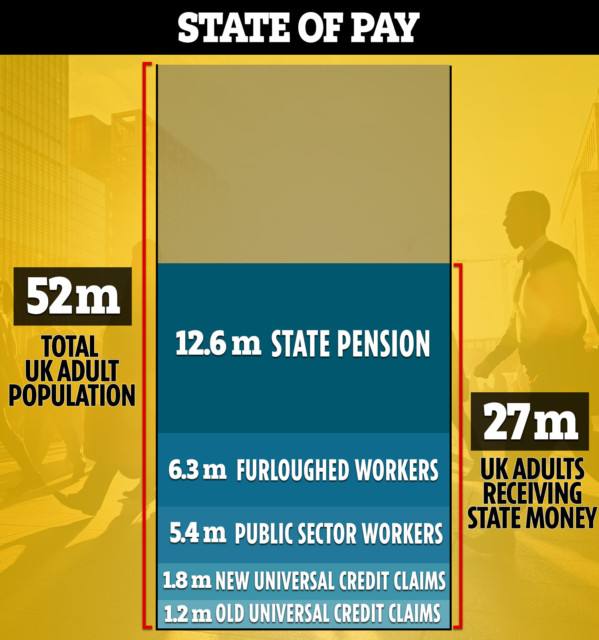RISHI Sunak is expected to change course and keep the Government’s wage support scheme in place beyond June.
Northern Ireland Secretary Brandon Lewis promised that the Government will extend the furlough scheme beyond its current expiry date of the end of June if workers still needed protected.
It is understood that the Chancellor will adapt the scheme to allow employers to furlough staff part-time in a bid to ease themselves back to operation following weeks of being shut during the pandemic.
The Federation of Small Businesses said a part-time furlough scheme was vital to help Britain’s strivers to “get back on their feet one step at a time” – warning that 16 million jobs depend on it.
HOAR revealed earlier this week that he is also considering targeting the scheme at sectors that will have to remain shut beyond June, such as pubs, restaurants and gyms.
Mr Lewis told BBC Radio 4 yesterday: “If we need to extend furlough beyond June we will do that, but we’re going to do this in stages when we have a better understanding of where we are in terms of the cycle of the virus and the impact on the economy at that stage. So we are determined to do it.”


It signals a change of tack from the Government after the Chancellor said earlier this week that he will “wind down” the scheme after June amid fears that much of the UK’s labour force has become “addicted” to wage support.
He said the taxpayer-funded scheme, which pays 80 per cent of furloughed workers’ wages, was “unsustainable” but pledged there would not be a “cliff edge” end to the payments.
Currently 6.3 million workers are on the job retention scheme designed to keep staff attached to their employer to minimise the number of redundancies from the Covid lockdown.
Former Chancellor Alistair Darling called on Mr Sunak to adapt the scheme to “accept the fact that it will take time for people to go back to work” because the economy will take a long time to open up again.
He urged him to set up a similar mass job creation scheme to the Flexible New Deal, that he established to tackle long-term unemployment triggered by the 2008 financial crisis. The scheme was designed to find work for jobless Brits.
‘ABSOLUTE NECESSITY’
Mr Darling told Radio 4: “The one thing we should learn about this is that the Government is not only the lender of last resort, it is also the insurer of last resort, it has got a duty to ensure that as far as we possibly can, people who lose their jobs are helped to get back into different employment if that is necessary.”
He added: “But for those people who are not going to be able to get back to work or will see significant income reductions then only at the end of the day the Government can step in – that is what it is for.”
Airport and ground handling companies have called for a tapered end to the Government’s job retention scheme (JRS) in a bid to avoid job losses.
Organisations including Airlines UK, the Airport Operators Association, Swissport and Menzies Aviation have written to the Prime Minister to stress the “absolute necessity” of a flexible end to the scheme amid expectations of an easing to the economic lockdown.
Between the airports, airlines and ground handling businesses, tens of thousands of staff are furloughed under the scheme.
The industry is warning it will not be in a position to return them all to work at the current end date next month and is likely to make a significant number of the redundancies the JRS was “designed to avoid”.
‘TIME IS OF THE ESSENCE’
Without a flexible or tapered end to the scheme, the industry will not be able to support the economic recovery, the letter warns.
FSB boss Mike Cherry said: “Today’s figures are a stark reminder that millions of jobs are stake in the weeks ahead. As we look to recovery, small firms must be allowed to get back on their feet one step at a time – 16 million jobs depend on it.
“Our members are telling us in no uncertain terms that part-time furloughing is the way forward – allowing staff to return to work for a few days a week while remaining furloughed for days when they’re not required.
“The economy is not suddenly going to start firing on all cylinders overnight. Adjustments to the job retention scheme need to reflect that fact.
“Government must avoid applying sector straightjackets that don’t work for small firms. There are far too many businesses that don’t fit neatly into one box, like small companies that mainly supply to hotels, but aren’t classed as hospitality firms.
“We need to see these changes made from the beginning of June as small businesses begin to restart. Orders are going unfulfilled because a few hours work doesn’t justify bringing somebody off furlough.
“Businesses can’t even quote for jobs to be completed once restrictions are eased. Time is of the essence.”


Paul Johnson, the director of the Institute for Fiscal Studies said Sunak should look at offering different furlough rates to workers in sectors of the economy which can begin reopening as part of the coronavirus recovery plan.
He said there was an “incredibly difficult and fine judgment” to be made as some sectors of the economy were unlikely to ever fully recover.
The respected think tank boss said: “One of the big questions for Government in moving away from furlough policy is the extent to which it is able to do that differentially by sector.
“You might think that the current system of really quite generous payments is appropriate for those sectors that have to remain locked down – so supposing you work in a bar or a restaurant you might think that’s reasonable.”
The IFS also presented new research that revealed Britain’s lowest paid workers are in jobs that are least able to do remotely – exposing how the coronavirus lockdown has hit the poorest the hardest.
The think tank’s Rob Joyce said it is easier to work at home in higher paid occupations such as corporate managers, business managers, scientists, engineers, business associates and customer services.
But lower paid jobs such as hospitality jobs, farming, sales, leisure and travel jobs are much harder to do from home, making “a lockdown especially problematic for lower earners on average”.
Meanwhile new figures from the Office for National Statistics gave a rare positive boost, showing more than three quarers of firms in the UK were still trading despite the lockdown.









